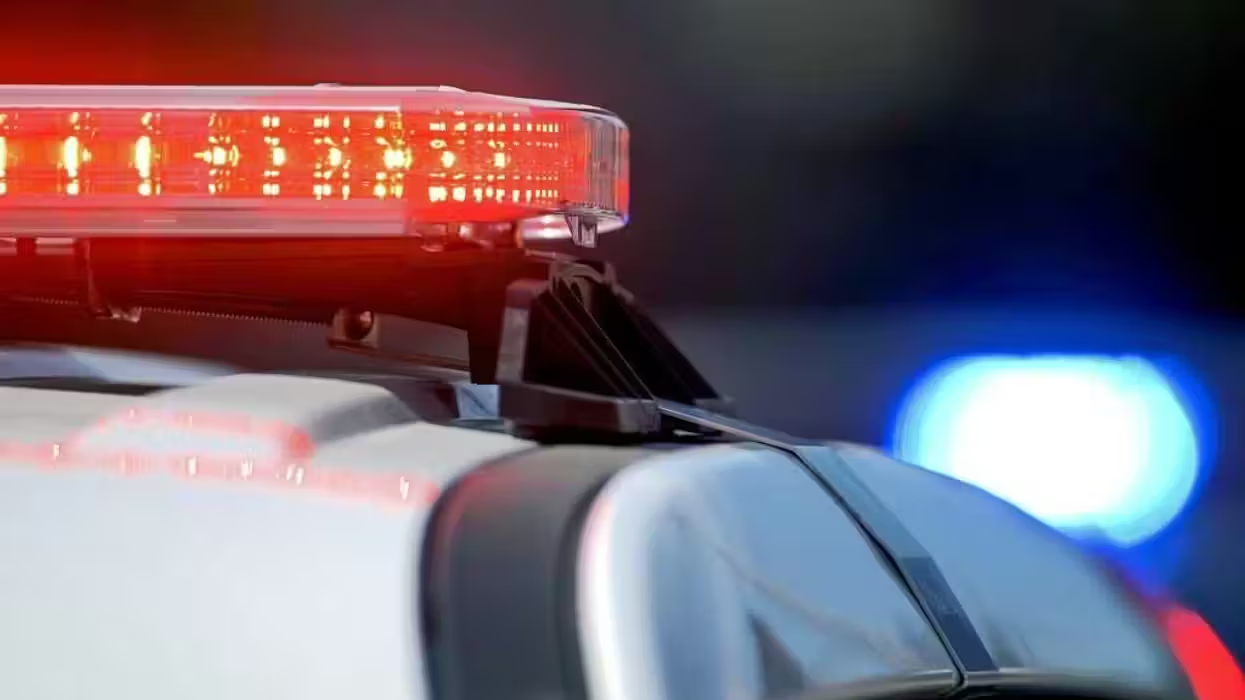
© 2025 Blaze Media LLC. All rights reserved.
Texas Students Rebelling Against Electronic Tracking Cards Now Facing 'Consequences
October 08, 2012
“The kids are used to being monitored."
Before the end of the 2011-2012 school year, TheBlaze reported a Texas school district's plans to track students using radio frequency and their I.D. cards. With classes in the San Antonio district school now well underway and the system implemented on Oct. 1, some students are rebelling against the required cards.
John Jay High School and Anson Jones Middle School within the Northside Independent School District issued each student a card using radio frequency to ID their location in an effort to boost attendance. Earlier this year, TheBlaze reported officials saying they expected to gain more funding from the state due to improved attendance levels.

Students picked up their badges at registration at the beginning of the year and were reportedly threatened with suspension or school transfer if they didn't use the badge. One student refusing to use the RFID card said she was denied the ability to vote for Homecoming king and queen.
WND reports Andrea Hernandez rejecting the RFID card for religious and privacy reasons. Still, she tried to use her old card to supplement required identification.

“About two weeks ago when I went to cast my vote for homecoming king and queen I had a teacher tell me I would not be allowed to vote because I did not have the proper voter ID,” she said according to WND. “I had my old student ID card which they originally told us would be good for the entire four years we were in school. He said I needed the new ID with the chip in order to vote.”
Hernandez also told WND she is not alone in rebelling against the badges. Other students have joined her as well. Hernandez's father, Steve, is also taking issue with the badge. Eventually, his daughter was permitted to use her old badge but there are "consequences," Deputy Superintendent Ray Galindo wrote to her father, to not having the tracking card. Not being able to vote for Homecoming court was one of them.
“He told me in a meeting that if my daughter would proudly wear her student ID card around her neck so everyone could see, he would be able to quietly remove her chip from her student ID card,” Steve Hernandez explained. “He went on to say as part of the accommodation my daughter and I would have to agree to stop criticizing the program and publicly support … it. I told him that was unacceptable because it would imply an endorsement of the district’s policy and my daughter and I should not have to give up our constitutional rights to speak out against a program that we feel is wrong.”
Steve Hernandez is not the only parent to protest the chips. At a late September school board meeting, several individuals came forward to voice concerns. Watch this news report after the event:
Heather Fazio, executive director of Texans for Accountable Government who spoke after the school district event in the video above, also highlighted to WND one of the privacy concerns regarding the cards. She said she was able to obtain private information, like home addresses, about the students through a Freedom of Information Act Request. She believes this information could be exploited by potential predators.
The organization "Chip Free Schools" writes in its position paper that it sees tracking students with RFID cards as not only a threat to civil liberties and privacy but also notes the potential for health risk from electromagnetic radiation.
Even with these complaints though, the district's spokesperson Pascual Gonzales told Wired last month that opposition to the cards as a whole has been minimal. The school district will evaluate how the pilot program goes and could institute it in the NISD's more than 100 other schools in the future.
It is important to note that the RFID cards stop tracking students when they leave campus.
Although Wired reports some saying the cards are tracking the kids like "cattle," Gonzales said they are used to surveillance.
“The kids are used to being monitored," Gonzalez told Wired, noting the districts more than 200 cameras.
Read more details of the ID card dissent in here.
Featured image via Shutterstock.com.
Want to leave a tip?
We answer to you. Help keep our content free of advertisers and big tech censorship by leaving a tip today.
Want to join the conversation?
Already a subscriber?
more stories
Sign up for the Blaze newsletter
By signing up, you agree to our Privacy Policy and Terms of Use, and agree to receive content that may sometimes include advertisements. You may opt out at any time.
Related Content
© 2025 Blaze Media LLC. All rights reserved.
Get the stories that matter most delivered directly to your inbox.
By signing up, you agree to our Privacy Policy and Terms of Use, and agree to receive content that may sometimes include advertisements. You may opt out at any time.






